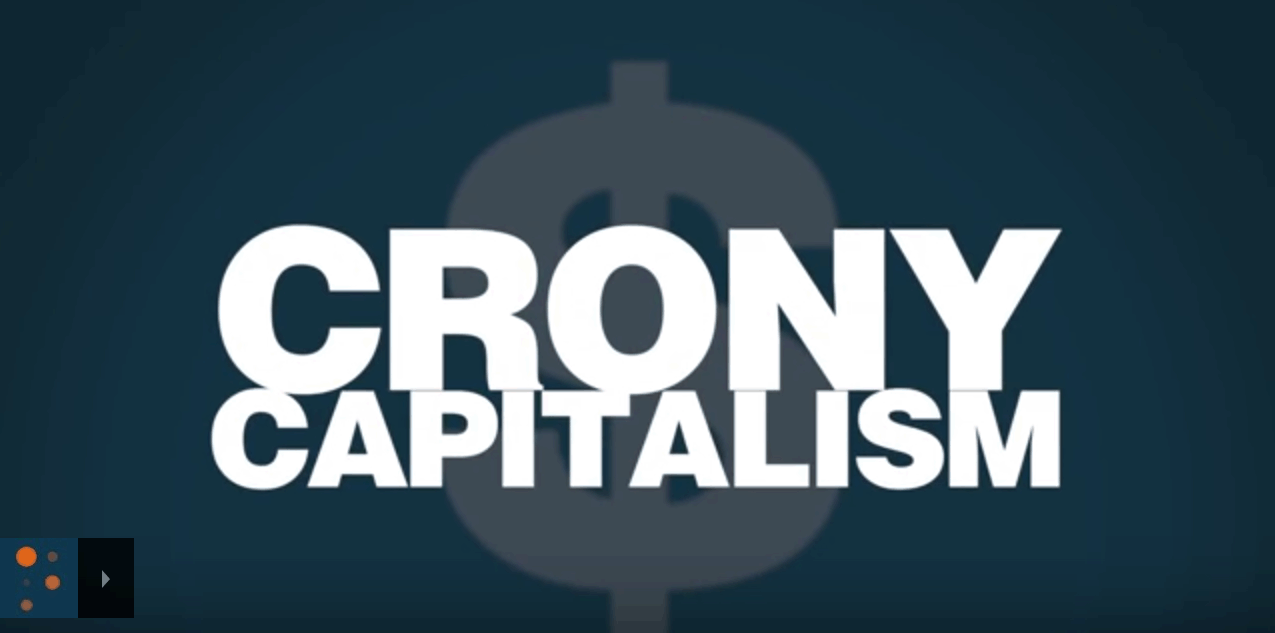Crony capitalism is a term that we have been hearing a lot lately. The term has come into use to distinguish the kind of economic system we, in large part, have in this country with true free market capitalism. In the former there is a cozy relationship between business, particularly big business, and government where political favoritism rules resource allocation. My colleague Julie Tisdale, JLF’s City and County Policy Analyst, offers a great example of this in Henderson County in a recently published Carolina Journal op ed. And Jon Sanders, Locke’s Director of Regulatory Studies, takes a broader perspective looking at various crony capitalist schemes that plague North Carolina’s economy more generally.
Under free market capitalism, there is an arms length relationship between government and business where the government creates a broad institutional setting of secure property rights that allows entrepreneurs to succeed or fail based on their own talents. It is a system that abhors government favoritism and embraces neutrality with respect to business decision-making.
It should be noted that nearly all crony capitalist schemes — whether subsidies for renewable energy companies, Hollywood movie moguls via film incentives, or giant shipping companies like CSX — are typically advocated for with pseudo analysis using any one of several "economic" models developed and sold by private companies, who are ultimately part of the crony nexus. The most common is a proprietary model called IMPLAN, but there are others. These models have been designed as tools of crony capitalism. No matter what the subsidy is that is being advocated for, when used, usually by the industry being subsidized, the studies always give results that support the crony relationship between government and business. In other words, an entire industry is built up around the crony capitalism model. State, local, and federal governments offer subsidies to certain industries. These industries try to convince politicians that they are worthy of the taxpayer largesse. In turn this creates a demand on the part of these companies for "economic studies" showing that their particular subsidy will be great for the economy. This, in turn, generates a supply of "economic models" that are designed to give the businesses or industries what they want.
This video produced by Prager University takes an analytical yet entertaining look at crony capitalism, compares it to free market capitalism, and explains why it is economically destructive.
Click here for the Economics & Environment Update archive.
You can unsubscribe to this and all future e-mails from the John Locke Foundation by clicking the "Manage Subscriptions" button at the top of this newsletter.



